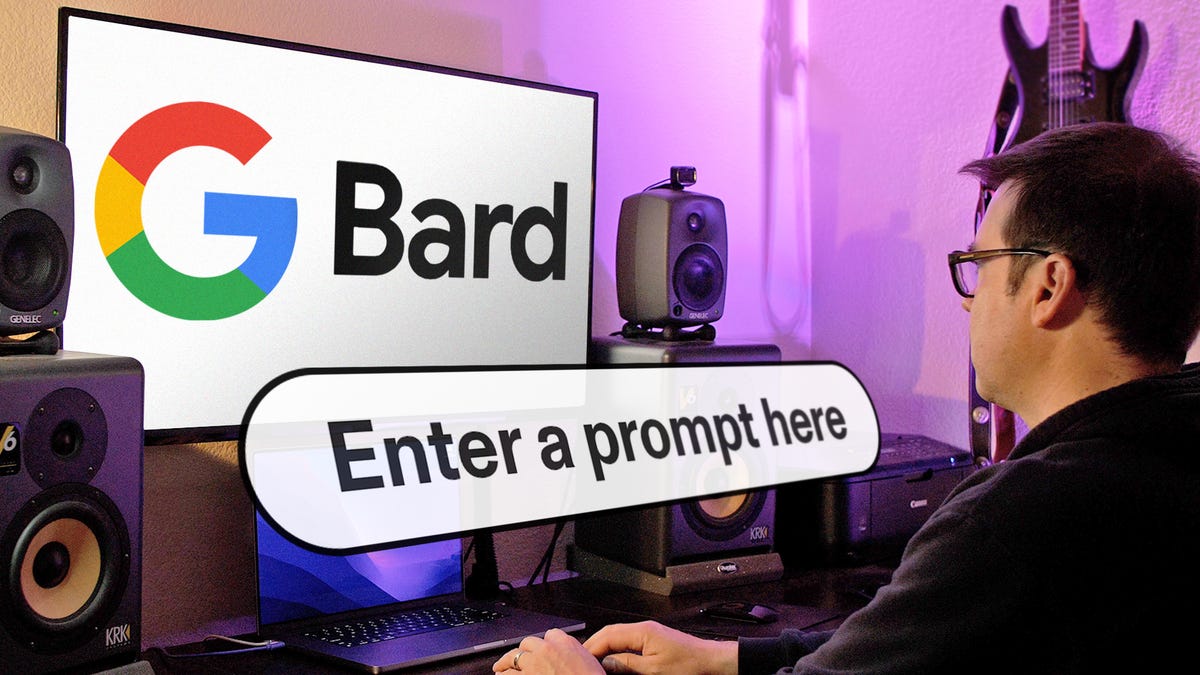Why This Year's Google I/O Could Be More Important Than Ever
Google will have to prove it can keep up with Microsoft in the escalating AI race.

Google I/O is always an important occasion for the company. It's where Google announces new tools for developers, shows off experimental technology and previews upcoming products. But this year's conference is bound to draw more eyeballs than usual thanks to the excitement surrounding generative AI -- or artificial intelligence algorithms that can create content based on text prompts.
"This year, with the explosion of generative AI, there's going to be a lot more focus on Google from everyone else," said Avi Greengart, president and lead analyst of Techsponential.
Ever since ChatGPT captured the interest of investors, the general public and the tech industry in late 2022, Google and Microsoft have been vying for dominance in the generative AI field. That competition has been on full display throughout 2023 as both companies rolled out new AI-driven features and products.
Google reportedly issued a "code red" within the company in December following the success of ChatGPT, according to The New York Times. Google I/O, which takes place on May 10, would be a prime opportunity for the company to show just what the efforts behind that "code red" crunch have amounted to.
The rivalry between Google and Microsoft
Microsoft Bing has an AI "co-pilot."
It's rare for a company besides Google to make headlines because of its search engine. But that's exactly what happened in 2023 when Microsoft announced new AI-powered features for Bing. As part of its so-called Bing revival, Microsoft incorporated the technology behind ChatGPT to deliver more conversational answers to search queries.
It was the first in a flurry of AI-related updates from Microsoft this year. The Windows maker is also sprinkling AI-powered features throughout Word and the rest of its Office 365 productivity suite. It also introduced an AI tool for helping cybersecurity professionals spot and address potential threats. Microsoft's investment in OpenAI, the company behind ChatGPT, also gave it an early advantage in the AI race.
But Google had plenty of AI-related announcements to make in 2023 so far as well. The company introduced its ChatGPT rival called Bard in February right around the same time Microsoft announced the new Bing. Google also opened up Bard more broadly in late March, allowing people in the US and UK to sign up to try it. It didn't take long for Google to extend its AI push to its productivity apps too. It teased some new AI-powered writing and organization tools for Gmail and Google Docs in March, and we're likely to hear more at I/O.
Google Bard
Now, Google is said to be building a completely new AI-powered search engine, according to The New York Times. The new search engine would be more conversational and offer lists of suggestions based on what it thinks a user wants to buy or research, says the report. Google CEO Sundar Pichai also told The Wall Street Journal that it plans to add more AI to Google Search.
If The New York Times' report is accurate, we're likely to hear more about these efforts at Google I/O. Historically, Google has used I/O to flaunt its AI prowess and exhibit new technologies -- even those that aren't ready for prime time.
Last year, for example, it showcased a pair of experimental augmented reality glasses capable of real time language translation. Google I/O was also the venue for the debut of Duplex, the company's AI phone calling assistant.
Google's history of making AI-related announcements at I/O combined with its ongoing competition with Microsoft have likely raised expectations that big announcements are in store for this year's conference.
That's crucial if Google wants to appeal to enterprise customers, according to Chirag Dekate, an analyst for market research and consulting firm Gartner who covers AI. According to Dekate, Microsoft has done a better job than Google so far at showing how generative AI can be helpful across its products.
"I think [Microsoft has] certainly captured enterprise leaders' imaginations," he said. "I think they've given even more reason for enterprises to look at Microsoft's portfolio specifically for generative AI than ever before."
Why the AI race is so important right now
Companies like Microsoft and Google are sprinting toward generative AI because it's believed to be the future of how we work and search for information on the internet -- two areas that Microsoft and Google have respectively built their businesses on.
If the fact that giants like Microsoft, Google, Meta, Snap and Amazon are all focusing on generative AI in some way isn't convincing enough, venture capitalists are also pouring tons of money into the space. In the first quarter of 2023, deals related to generative AI generated roughly $1.7 billion, according to PitchBook, a website that provides data on global capital markets.
AI also came up a lot during Microsoft and Google parent Alphabet's recent earnings calls, further indicating that the technology will play a huge role in their future product roadmaps.
If Google misses out on the generative AI boom, it may not be able to catch up, Dekate said. And that could have some serious consequences for Google's business. Samsung has reportedly considered replacing Google with Bing as the default search engine on its devices, says The New York Times. That would put an estimated $3 billion in annual revenue at stake for Google, according to the report.
"These moments are few and far between," Dekate said. "And now's the time for Google to shine if they want to."
Editors' note: CNET is using an AI engine to create some personal finance explainers that are edited and fact-checked by our editors. For more, see this post.

